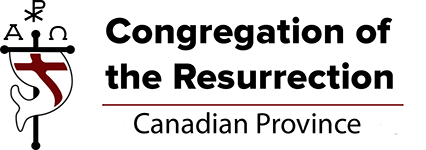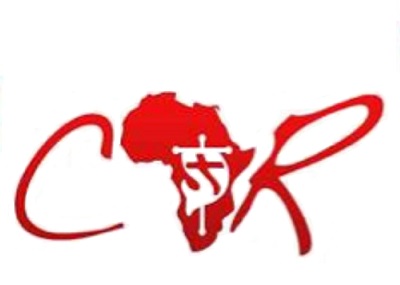
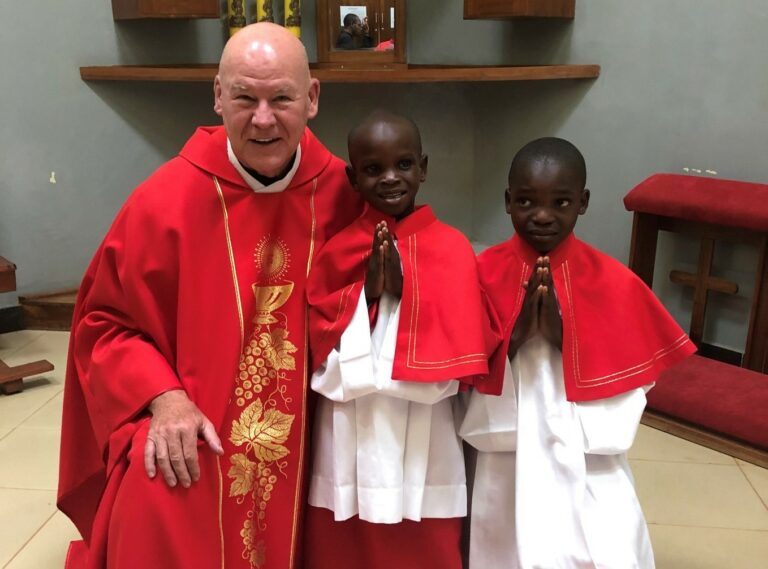
Action Resolution #31 from the 2023 General Chapter reads: “The rector will initiate a program that will assist Philosophy and Theology students to grow in Human Development.” In order to implement this resolution, we began last year to use Stephen Covey’s 7 Habits of Highly Effective People. Over the last two years, I have been able to bring enough copies of the book and also copies of Covey’s Personal Workbook that provides exercises for the 7 Habits.
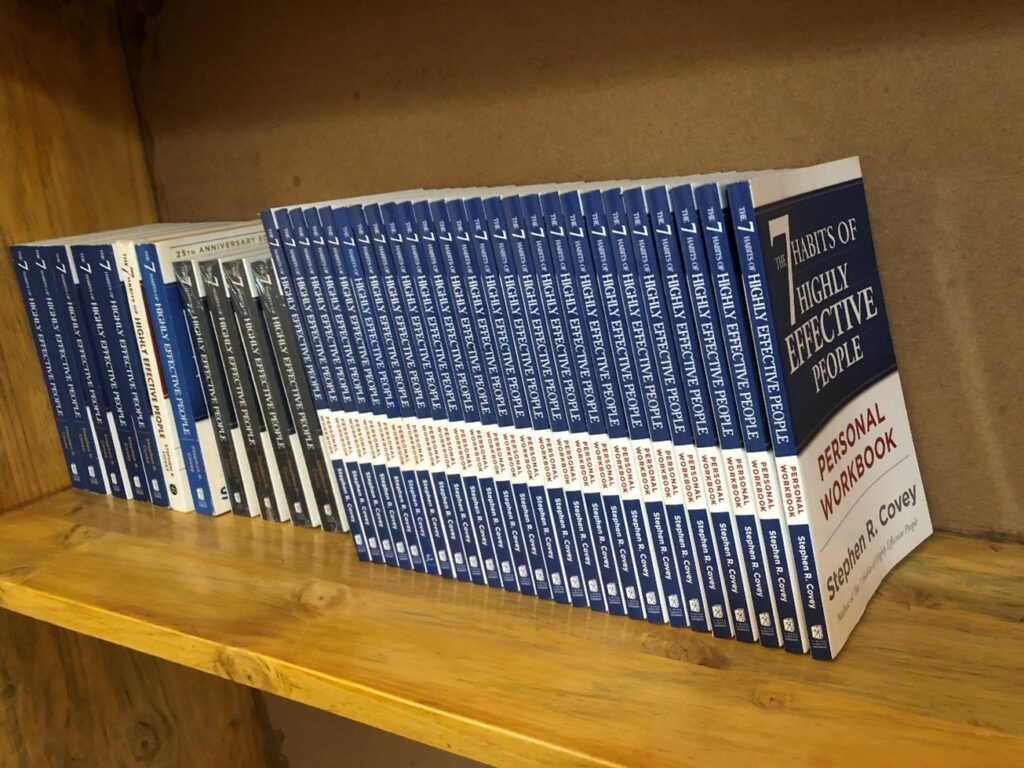
I have used Covey’s 7 Habits of Highly Effective People for many years, beginning in 1997. It was a bit of a “crisis moment” in my life. I had started teaching at Mount St. Mary’s University in the fall 1996, but I still had not finished my dissertation. I was able to do very little work on it during my first year of teaching. Everything was new to me: class preparation, class time, preparing and giving tests, and grading papers. I had no idea how much time all of this took. I had never taught before in a classroom and I was up late every night trying to be ready for the next day. I cringed if a student asked me about something for next week as I hardly knew what we were doing this week!
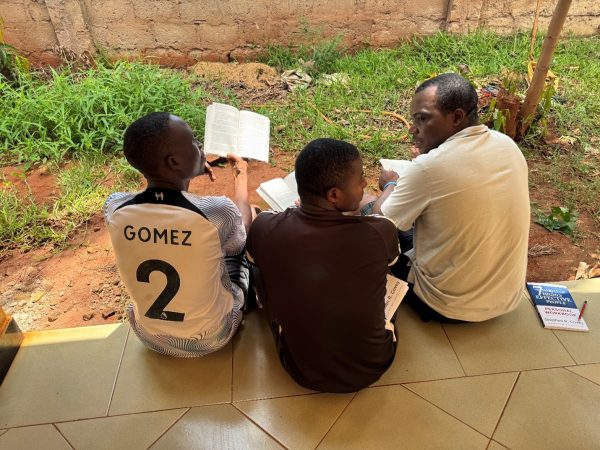
Then I found out that my dissertation director was retiring. I had one semester to finish but I was having difficulty “pulling things together.” Then I saw an advertisement for a two-week workshop in the Archdiocese of Baltimore about how to incorporate Covey’s 7 Habits into ministry. I signed up. Of course, I should not have done this! I should have been working on my dissertation. In any case, I learned from Habit 3 to “Put First Things First.” I realized that I needed to prioritize finishing the dissertation if I were to graduate and to keep this job that I loved. I made it my priority. I finished. I ended up teaching at Mount St. Mary’s University for over 25 years. This is only one example of how Covey’s 7 Habits have helped me over the years. I wanted to try to share these lessons with our seminarians.
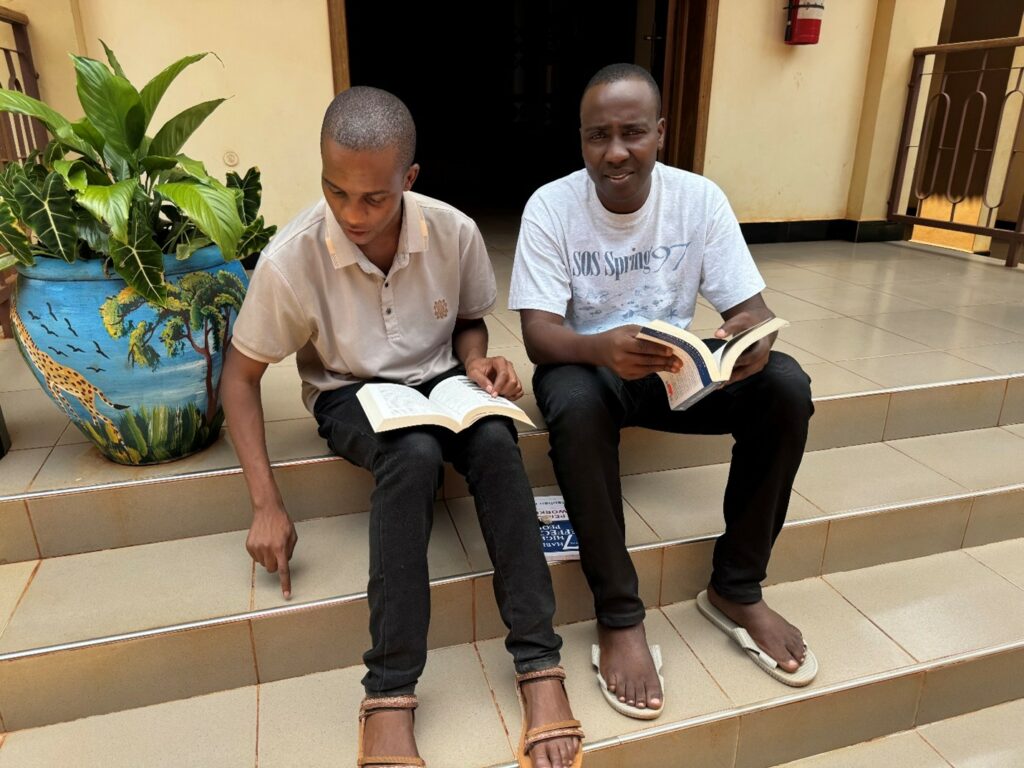
I remember seeing this book in bookstores—when we had many bookstores—and always passed it by, thinking: “more pop psychology.” But I now realize that the 7 Habits have deep roots in Aristotle and Aquinas who both wrote a great deal about habits and how they can lead to a virtuous life. I was able to attend many more workshops, and I began to teach these Habits in leadership courses at Mount St. Mary’s University and in many parish workshops.
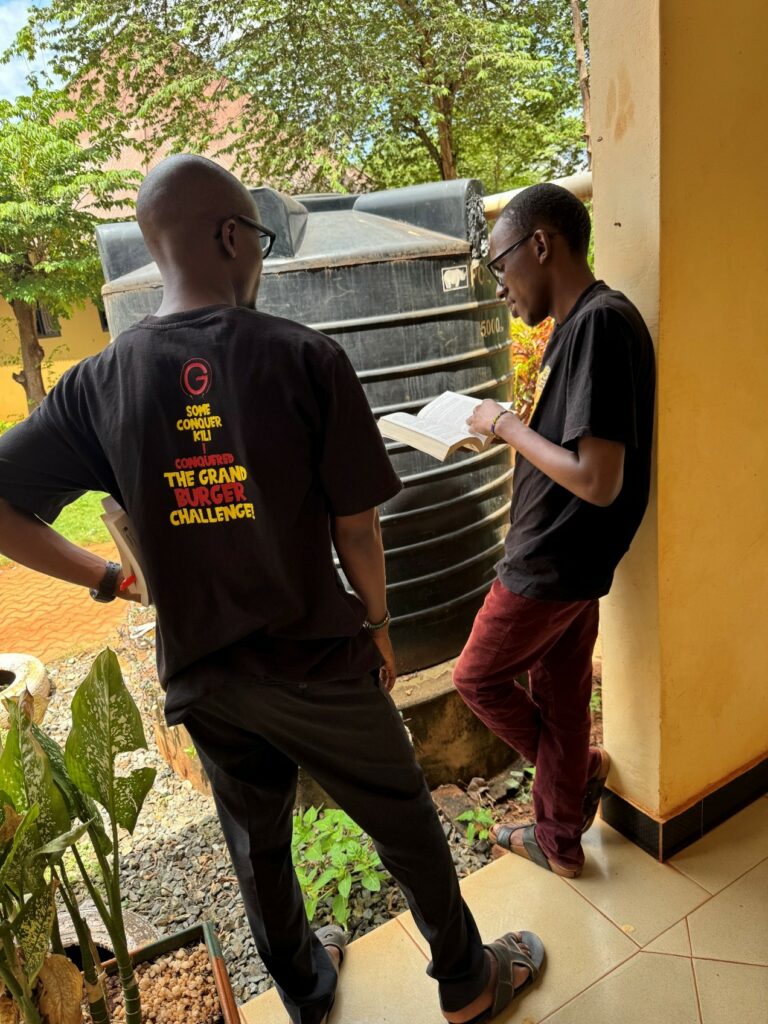
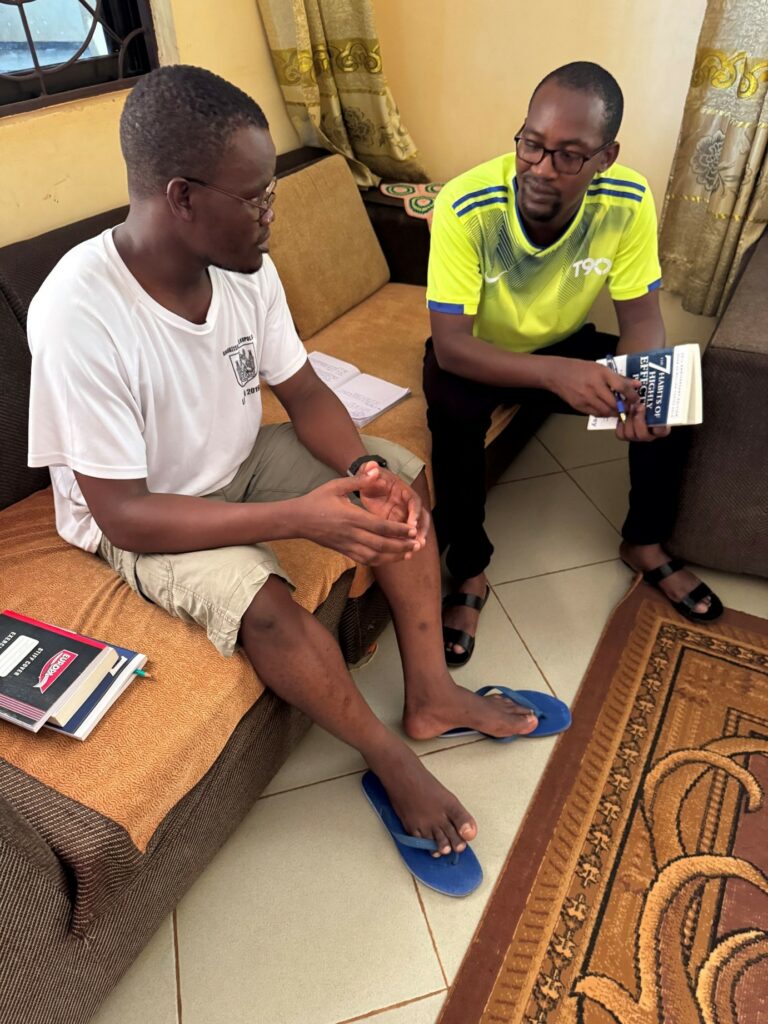
Last year we met most Saturday mornings for an hour per group. We had two groups so that the discussions were more fruitful. We were able to complete Habit 1: Be Proactive and Habit 2: Begin with the End in Mind.
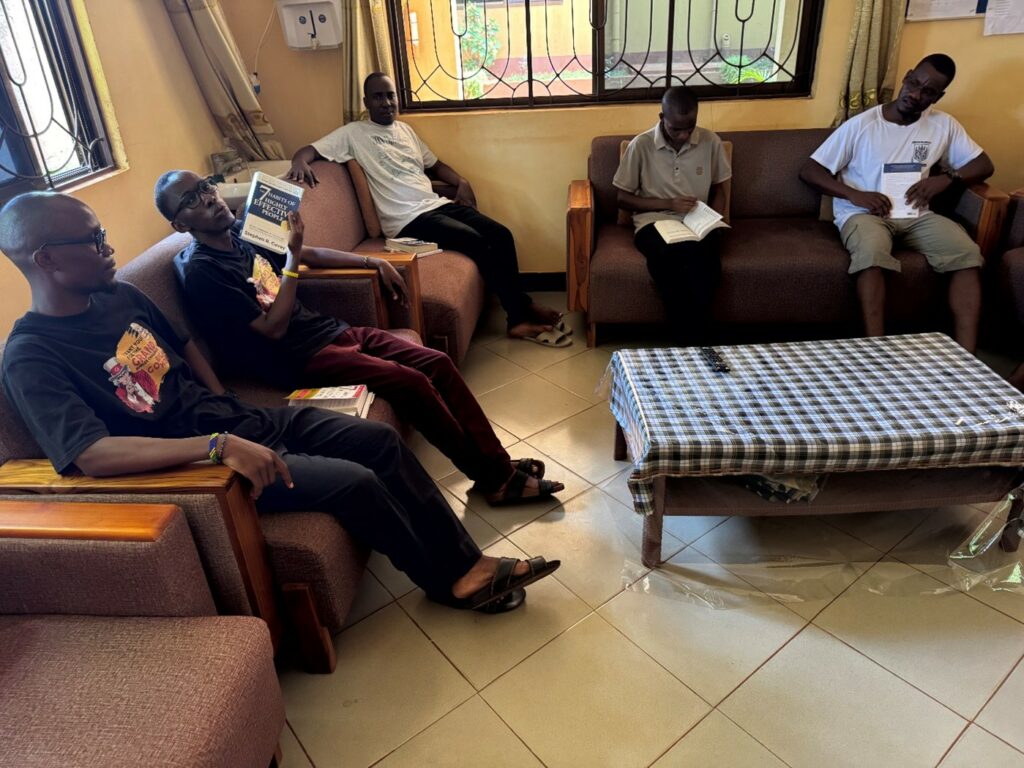
Covey refers to the first three habits as the “Private Victory.” These habits are about each person taking responsibility for his/her life, realizing that he/she has the “response-ability” for life choices, to have a plan for the future that impacts today (mission statement), and to schedule priorities (rather than prioritizing what is on your schedule).
The second group of habits are for the “Public Victory” or how we interact with others. Habit 4: Think Win/Win, Habit 5: Seek First to Understand, Then to Be Understood, and Habit 6: Synergize, all deal with personal leadership, empathetic communication, and creative cooperation—skills that any priest and religious can use!
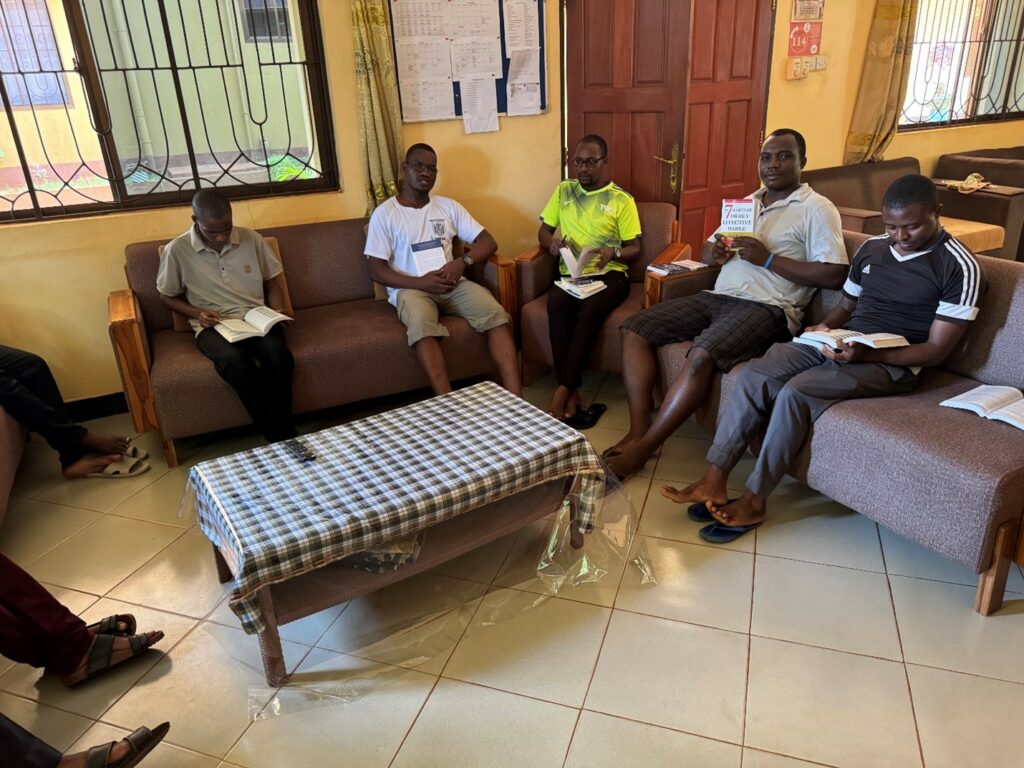
An immediate result of last year’s work was that the seminarians were each able to write a personal mission statement that they included in their end-of-the-year self-evaluation.
We seem to be making slower progress this year, but we are working our way through Habit 3 now, and I hope that we will be able to finish Habit 4 before the end of the year. I think it is more important to go slowly and to have a better understanding of things than to go quickly and miss out on integrating what people have read. The seminarians really take it seriously. They are always prepared, and we have had some very good discussions that impact their lives and future ministry.
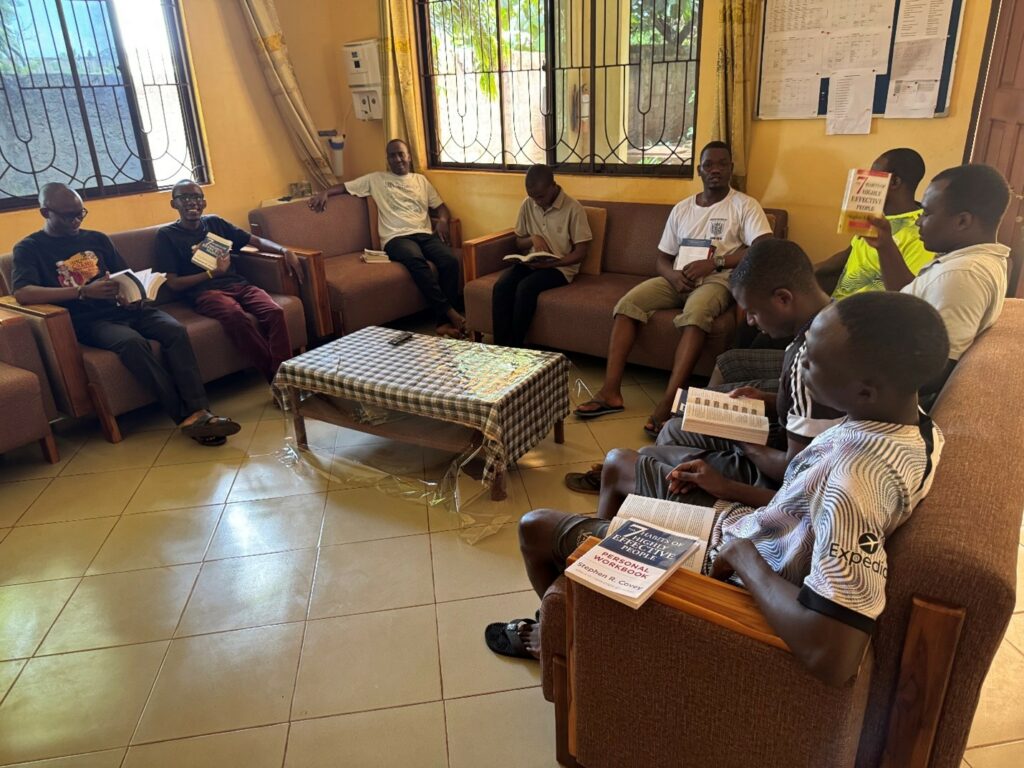
This year, however, we have 5 people who were not here last year because they were on Novitiate. Three of these seminarians have begun their Philosophy studies (Karoli, Paschal, and Joseph) and two of these seminarians have begun their Theology studies (Livinus and Valentino). It was not possible for them to just “catch up,” so they form a second Covey group where we are starting from the beginning.
So, our Saturday schedule looks like this:
9:00 choir practice
10:00 Mass and Morning Prayer
11:00 Covey group 1 (working on Habit 3)
12:00 Covey group 2 (working on Habit 1)
1:00 Midday Prayer
1:15 lunch
Joseph, Paschal, Livinus, Valentino, and Karoli work on Habit 1: Be Proactive.
More to come on www.resurrectionists.ca
Share This Post
More To Explore

6th Sunday in Ordinary Time – February 15, 2026
This week, animated by today’s readings, let us trust in the wisdom of God, and the presence of the Holy Spirit…
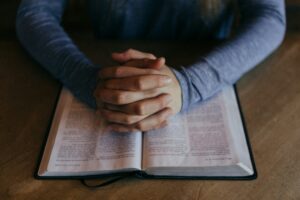
God’s Boundless Wisdom
Invited to reflect on God’s wisdom this Sunday, Sirach reminds us that our capacity to choose right from wrong – our capacity to discern – comes from God’s boundless wisdom.
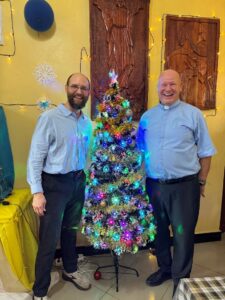
A Visit by Fr. Eric Wagner, C.R. – Fr. Jim’s Perspective
Today we have a recap of Fr. Eric’ Wagner’s visit, from Fr. Jim Donohue’s perspective.
